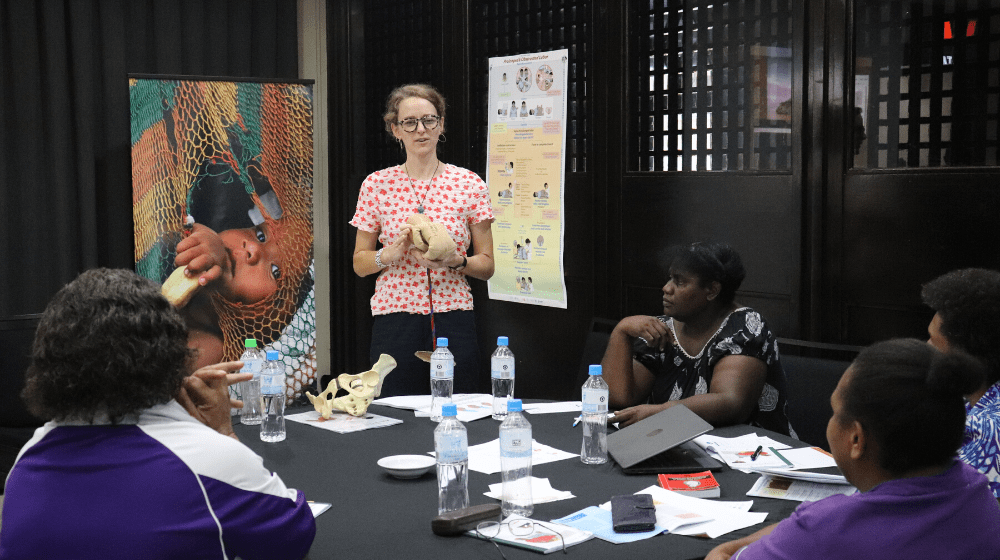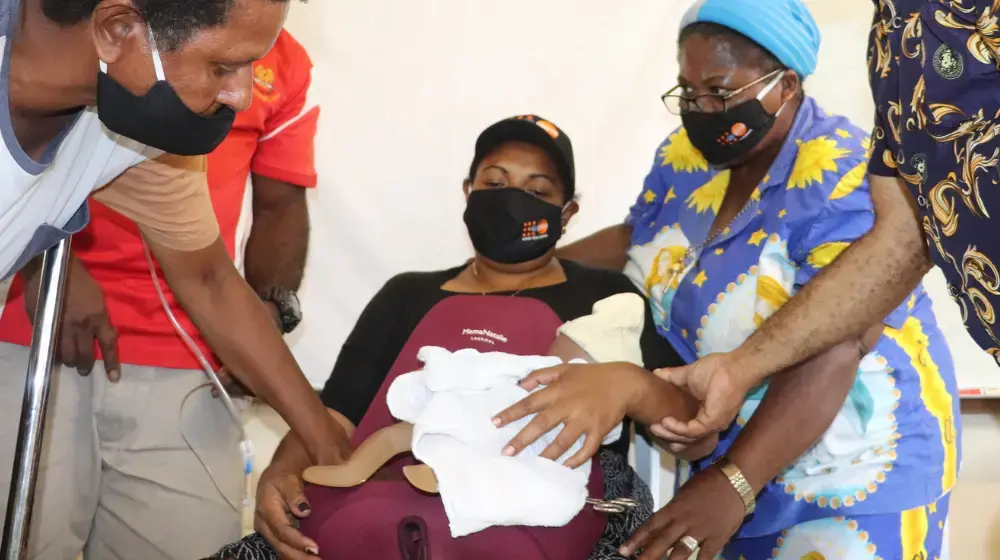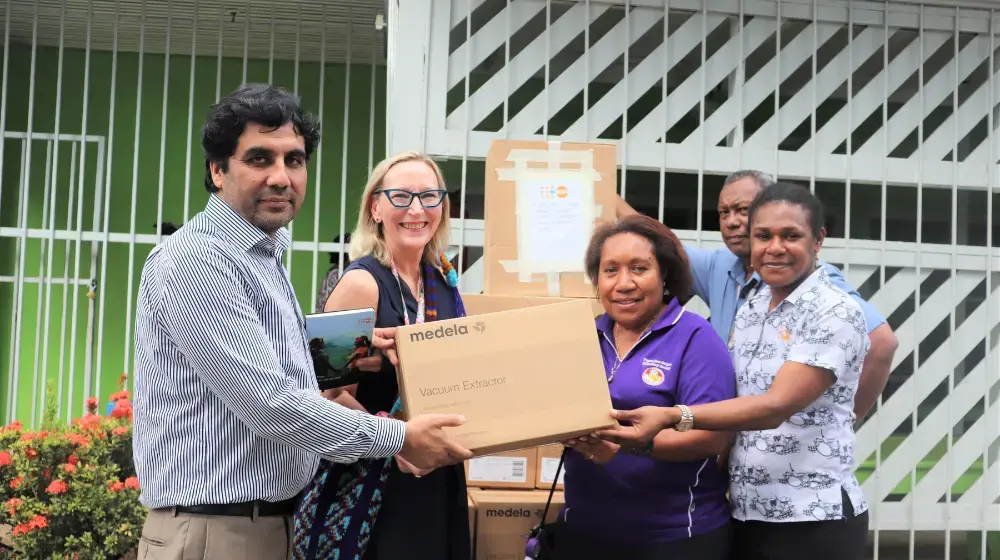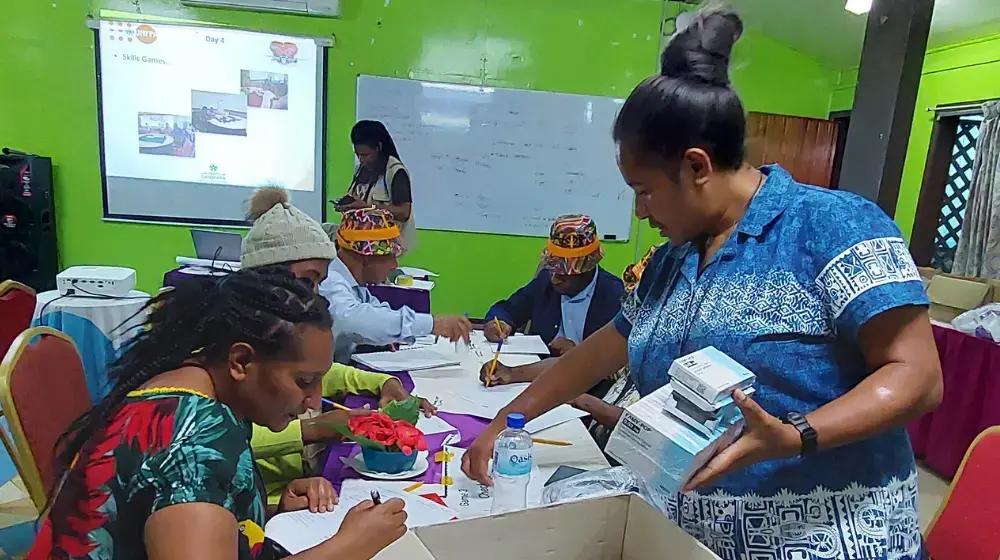Health outcomes for women experiencing prolonged or obstructed labour will be improved following capacity building for midwifery trainers and educators.
Fourteen Midwifery Master Trainers and four Midwifery Educators from educational institutions across the country participated in a four-day workshop in Port Moresby with specialists from the Burtnett Institute. These participants were guided through how to assess, monitor, and support women and babies when labour is not progressing normally.
In partnership with the Burnett Institute, the United Nations Population Fund in Papua New Guinea is supporting the National Department of Health to conduct Emergency Obstetric and Newborn Care (EmONC) training with midwifery professionals around the country. The program began in 2019 and over 100 midwives have been trained.
Facilitating this training was Burnett Institute’s Midwifery Specialist Kara Blackburn and Research Midwife Boe Calvert, who introduced how to complete a rapid assessment of mothers in labour when prolonged labour is suspected, what to do during ineffective contractions and how to manage hyperstimulation especially by managing oxytocin infusion.
“I hope to see an Improvement in the initial assessment of a mother in labour by midwives to identify any complications as soon as she arrives in the health facility and maternity ward,” said Ms. Blackburn.
“Midwives in PNG are doing extremely well in really challenging circumstances. especially in the rural areas when it is identified that a woman is in prolonged obstructed labour. I really commend the midwives for doing an outstanding job.”
Obstructed or prolonged labour can be dangerous both mothers and babies. It can lead to newborn deaths and chronic conditions like obstetric fistula.
Central to this training is participation in, and repetition of, simulations using state-of-the-art models. By providing this training to educators, the nation’s next generation of midwives are being provided with the highest standards of preparation before joining this essential workforce. Simulation supports the development of midwifery skills and creates a link between theory and practice.
According to Ms. Kara Blackburn simulations increase confidence and competence among midwifery students and healthcare professionals and strong evidence shows that students and healthcare professionals are able to retain the knowledge and are confident and competent in performing in a real life situation.
A senior Midwifery Lecturer from the University of Papua New Guinea , School of Health & Medical Sciences, Mrs. Lillian Temo was grateful for the enhancement of her skills in using simulators when teaching.
“I will encourage more student interactions through the case presentation of simulations which will increase their knowledge capacity as well,” said Mrs Temo.
In opening the training, UNFPA Country Representative Ms. Marielle Sander reaffirmed UNFPA’s commitment to the midwives working to serve women and babies in PNG and committed to a stronger, and more direct relationship between midwives and UNFPA.
About Midwifery and EMONC Training
UNFPA works to achieve a world in which every childbirth is safe. The EmONC training package has been pivotal to the organization’s partnership with the National Department of Health on strengthening maternal health in Papua New Guinea, with over 100 midwives and healthcare providers trained across the country. In addition, UNFPA is working to equip this workforce with the equipment and medicines they need to provide the best care to women and girls in PNG through the provision of sexual and reproductive health commodities secured with support from the Australian Government.





